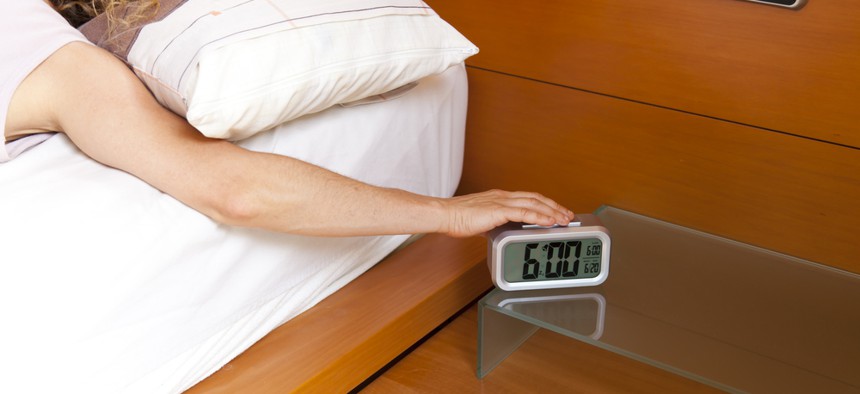
Shutterstock/fotoedu
There's Nothing Lazy About Working from Bed
Is clacking away on a laptop in bed more comfortable and productive than at a desk? Of course!
There is hope yet for haters of the treadmill desk, for people who despise cubicles, or, simply, for folks who don't really enjoy getting out of bed in the morning, much less commuting. Enough people are working from home in their beds (and, no, this is not a sex scandal thing) that Sue Shellenbarger has addressed it in a piece in The Wall Street Journal. "Is clacking away on a laptop while sprawling on bed sheets more comfortable and productive than hunching over a desk?" she asks. Of course it is! (Full disclosure: Writing this while hunched over a coffee table nowhere near a bed.)
A couple things to note. There have been real live studies done on this stuff. The researchers say that since so many of us now in the workplace have been brought up with our mobile devices, we're increasingly prone to using them whichever way is most comfortable—"while propped against pillows, lying down or in a fetal curl." Personally, I like to read Twitter on my iPhone while reclining on my mattress, though often the hand holding the phone will fall asleep, and sometimes I'll drop the phone on my face, which is not entirely pleasant. Despite these difficulties, I am not alone, even if I'm alone in their peculiarities. Lots of people are working from bed.
Shellenbarger writes that "half of 1,000 workers polled this year by Good Technology, a Sunnyvale, Calif., mobile-security software company, said they read or respond to work emails from bed. A study of 329 British workers found nearly 1 in 5 employees spends two to 10 hours a week working from bed, according to the 2009 poll by Credant Technologies, a London-based data-security company." Further, "Market research by Reverie, a Walpole, Mass., maker of adjustable beds, suggests as many as 80 percent of young New York City professionals work regularly from bed, says chief executive Martin Rawls-Meehan."
Read the full story at The Atlantic Wire.
Image via Shutterstock by fotoedu.






